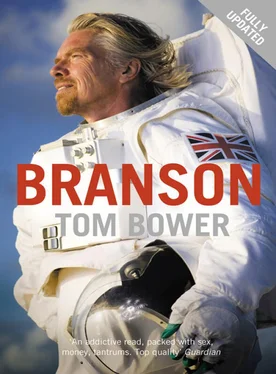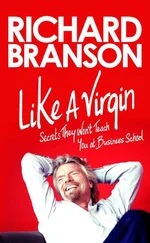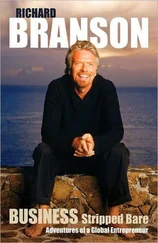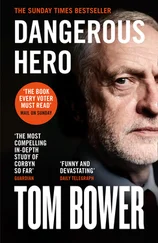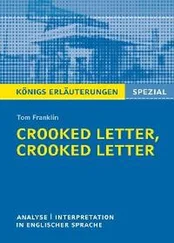Rob Gold had told Branson there was ‘some shooting in a public wood’ and Branson had brought two shotguns, an inheritance from his grandfather, Sir George Branson. Gold had never shot before but nevertheless took one of the guns as they walked in the countryside with the women trailing behind. Soon after the two started shooting, they heard yells. A gamekeeper was running from one direction and the landowner from another. Branson realised immediately that they were trespassing and ran off with the women. Gold fell and was caught. Both were charged with poaching.
Two months later Branson and Gold returned to Suffolk by train to attend the Sudbury magistrates court. During the entire journey, Branson carefully read The Financial Times.
At the hearing, Rob Gold noticed the clerk approach Branson. ‘I understand your father’s a magistrate?’ asked the clerk, confirming information which Branson had earlier supplied. ‘Yes,’ nodded Branson gravely. Seconds later, the clerk was whispering in the ear of the Suffolk magistrate. Watching with awe, Gold understood the social chasm separating himself from Branson, and the essence of his friend’s fearlessness. The fine was only £10 and the confiscation of the guns. Branson smiled. This nonchalance was confusing for those unaware that behind the awkward reticence was an acutely self-confident young man, a master of exerting influence.
‘Do you realise who you are dealing with?’ Branson challenged a police officer when, shortly after, he was stopped speeding in Glasgow. A growing sense of invulnerability fed his appetite for recklessness, developed as a boy at Stowe, the public school where he was educated. Lacking any signs of self-doubt or fear of retribution, Branson showed remarkable ability to speedily bypass the truth. For him, the plot to defraud Customs and Excise was just another whacky prank.
‘It’s a great wheeze,’ he buzzed. Cheating Customs, he urged his employees, would be effortless. For a child from Surrey’s stockbroker belt evading taxes imposed by the confiscatory socialist government was an act of principled defiance. The Establishment’s rebels were sure that rules could be ignored, bent or broken. Doubters were swayed by Branson’s enthusiasm for the role of Robin Hood. Helping impoverished students hear their music despite the ogreish government’s taxation, he urged, would constitute a blow for justice. None of Branson’s merry group had ever committed a serious crime but all were mesmerised by Branson’s persuasiveness that his interests and theirs were identical, even if the scheme was illegal. Chris Stylianou, the Charterhouse-educated manager of Caroline Exports, was wary until others nodded agreement. Branson’s genius was to disguise his impatience for fame and fortune by championing the struggle of down-trodden youth.
The white Transit van was driven regularly to Dover. The documents for the export of records were proffered and, after securing the official stamp on the PT 999 form from the Customs officer, driven unseen back to London. The van rarely transported the records specified on the consignment. Instead, a batch of worthless recordings of the Band of the Irish Guards was loaded. Over a period of months, Virgin’s mail-order business attracted gratitude from a growing army of music fans.
By the time Mike Knox reported to his superiors – ‘Virgin looks dicey. It’s worth an operation’ – about twenty young employees, enjoying the permanent party atmosphere encouraged by Branson, were dispatching the ‘export’ records by post from the warehouse in Paddington. Among the thousands of customers were Mike Knox and Dick Brown, his deputy in the Customs investigation team, ordering records as normal customers from their home addresses.
Their investigation had started after a visit to EMI’s head of security in Hayes, west London. Knox had confessed his bewilderment to the record producer’s head of security about Branson’s ability to sell his records cheaper than the shops. The former policeman employed by EMI admitted his own suspicions that ‘Something’s fishy’.
‘I’ll look at his PT 999s,’ thought Knox.
Reading through the thick wodge of Customs certificates accumulated by Branson over the previous ten months, Knox noticed the official stamps at Dover testifying to his regular export of records in batches of at least 10,000 to every country in Western Europe and to the United States. Knox was particularly intrigued by two certificates. On both occasions Branson had, according to the certificate, exported 30,000 records in a Land Rover. Amid the clatter of Branson’s office, no one heard the staid ‘tax clerk’ murmur to himself, ‘You can’t load 30,000 records on to a Land Rover.’ Shortly afterwards, a surveillance unit had been established in St Mary’s Hospital, overlooking Branson’s offices.
Every night at 3 a.m. over the following three weeks, Dick Brown arrived at EMI’s headquarters. Neatly stacked in the record producer’s loading bay were boxes marked for delivery to Virgin, invariably with a note on the invoice: ‘For export’. Regularly, Branson was ordering two hundred copies of ‘She’s a Lady’, Tom Jones’s hit, apparently for export to Switzerland. To monitor the fate of those records, Brown marked on each record a letter of the alphabet with an ultra violet pen, invisible to the naked eye. ‘A’ was given for the first day and consecutive letters were marked on each successive day’s consignment. The copy of ‘She’s a Lady’ delivered by post to Brown’s home from Virgin bore the ultra violet mark.
At the end of the three weeks’ surveillance, Knox gazed down at the building forlornly. No Land Rover had appeared at the warehouse and no large consignment had been loaded on to the white Transit. The report sheets were blank. The only unusual activity was Branson’s departure early that morning by taxi and his return by taxi late in the afternoon. ‘I’ll phone Dover,’ groaned Knox. Unknown to Knox, Branson had refined the mechanics of his fraud. To maximise his profits, he had searched for ways to save costs. Since the frequent passage through Dover had not aroused any suspicion, Branson had avoided the expense of sending the Transit to Dover by dispatching someone to the port by train. Knox’s telephone call to Dover exposed the refinement. That same morning, Branson had presented in Dover an export certificate for 10,000 records. ‘Cheeky chappy,’ smiled the Customs investigator. ‘He went cheap, on an away-day.’
Knox decided to raid the premises after Branson submitted his next purchase tax returns. After a three-month investigation, his schedule, covering dozens of pages, listed ‘hundreds of phoney exports’ which had profited Branson the equivalent of £370,000 in the year 2000. ‘It’s a big case,’ he concluded.
An anonymous telephone call the night before the raid sparked frantic activity inside Virgin’s warehouse. The caller was a disgruntled Customs officer, jealous of Knox, warning about the plan. Before daybreak, Branson and two co-conspirators had transferred the ‘export’ records from the warehouse to the new Virgin shop in Oxford Street. Virgin’s employees arrived the following morning unaware of any tension. Even John Varnom, a member of the ‘family’, would remain oblivious about the tip-off and the night-time transfer. Branson felt no compunction to say more than necessary. He already understood the importance of secrecy in creating successful businesses.
Cool nonchalance greeted the team of determined Customs investigators waving a search warrant at 10 o’clock in the morning. The ‘gangly, laid-back, long-haired lad’ with a mop of fair hair, affecting the nasal tone of Mick Jagger to suffocate his natural upper-class twang, betrayed no hint of concern. He was even, Mike Knox reflected, rather welcoming.
Читать дальше
